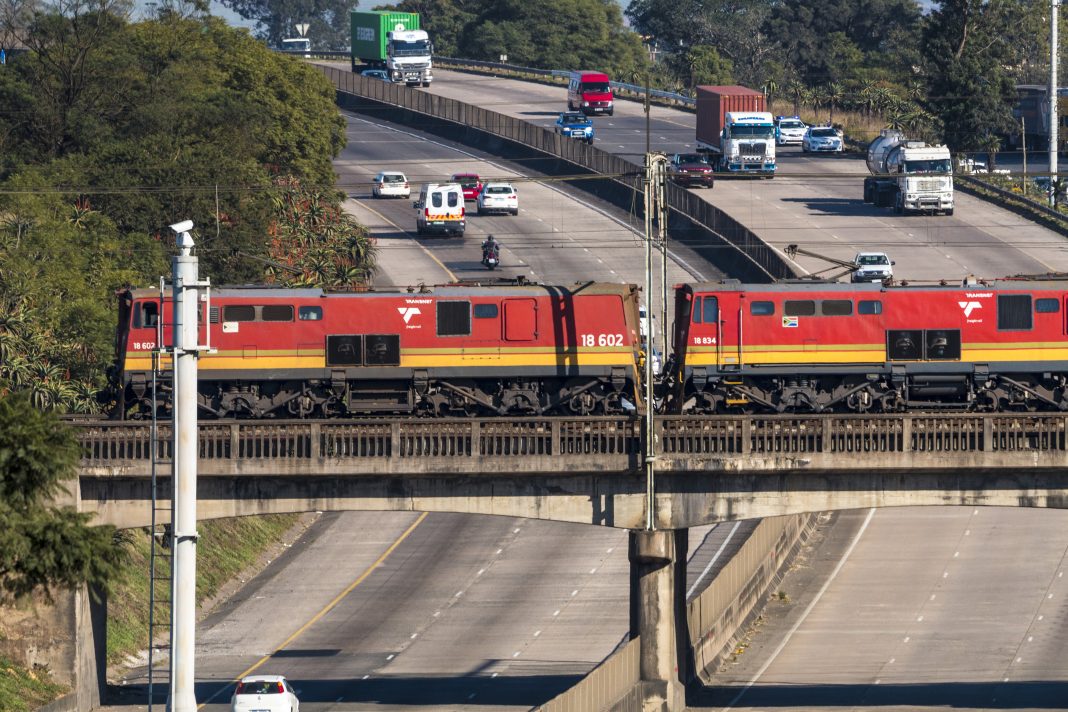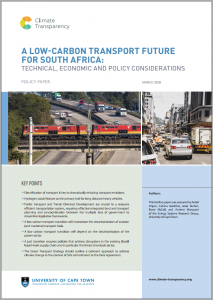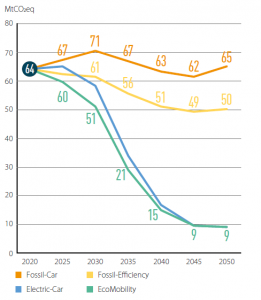The South African transport sector, which accounts for 14% of total emissions, is set to potentially become the largest greenhouse gas emitter by 2050 if the current trend of increasing motorisation and defection from public transport persists.
This policy paper provides an analysis of a group of scenarios, which look both at technology choices for transport, and overarching transport usage and policies in South Africa.
It also argues that policies, which aim at decoupling transport from emissions are necessary to achieve climate objectives, while also enabling economic activity and meeting passenger mobility needs.
The potential to decarbonise the South African transport sector through exploring a combination of two packages of interventions is being presented in this paper.
The first of these consists of vehicle technology shifts – from the current dominance of internal combustion engines to various forms of electric and hybrid vehicles. The second is a concerted set of policy interventions resulting in lower transport demand (spatial planning, transport avoidance, promotion of nonmotorized transport options), and a modal shift of freight and passenger transport.
The analysis indicates that in light of continued technological innovation, the transport sector is able to contribute an order of magnitude higher to emissions reductions if policy encourages the adoption of economic and resource efficient technological alternatives, and behavioural changes towards public transport.
This work therefore shows that the electrification of transport, contingent on a decarbonised power sector, should be a key policy imperative to decarbonise transport in order to meet the Paris Agreement.









